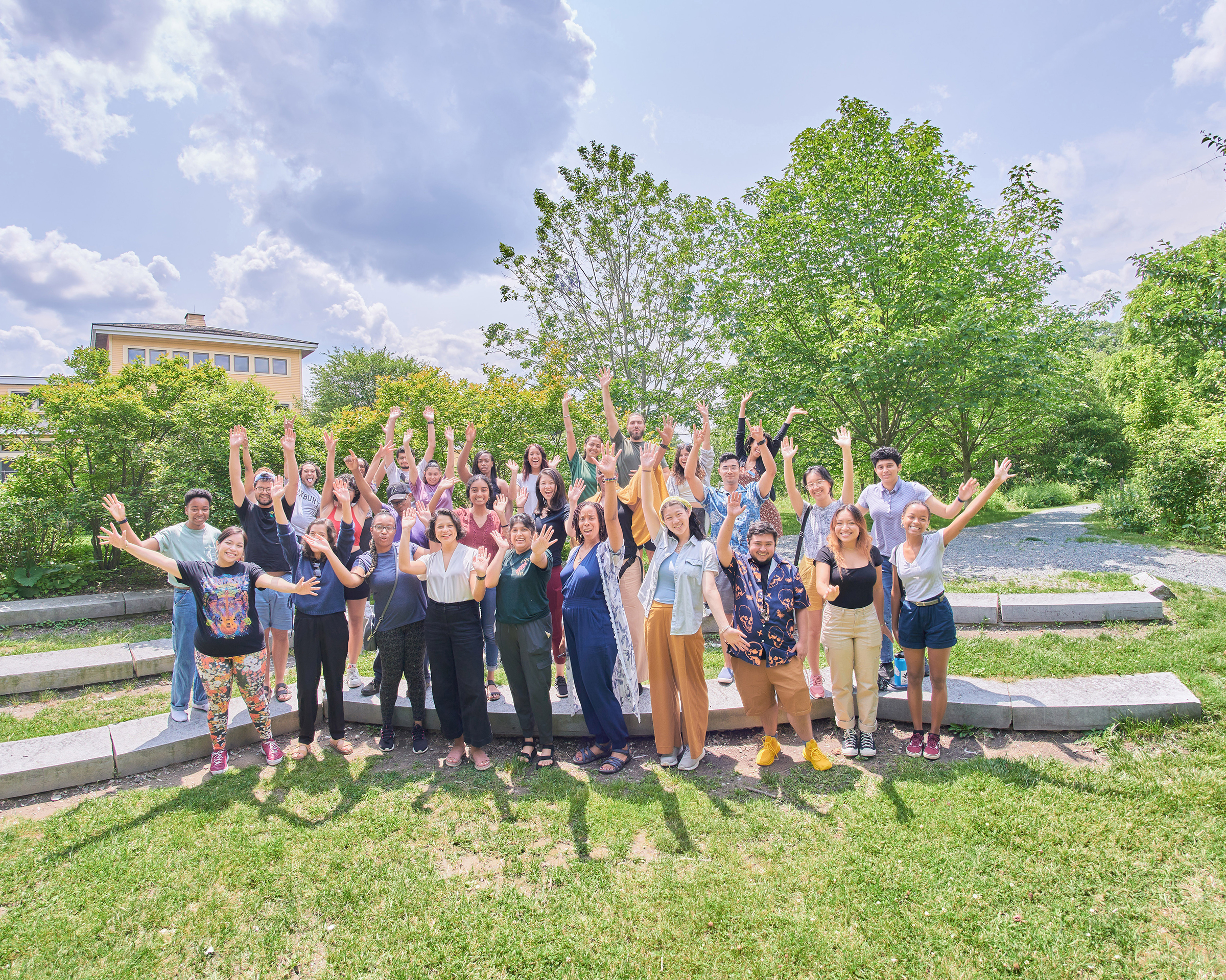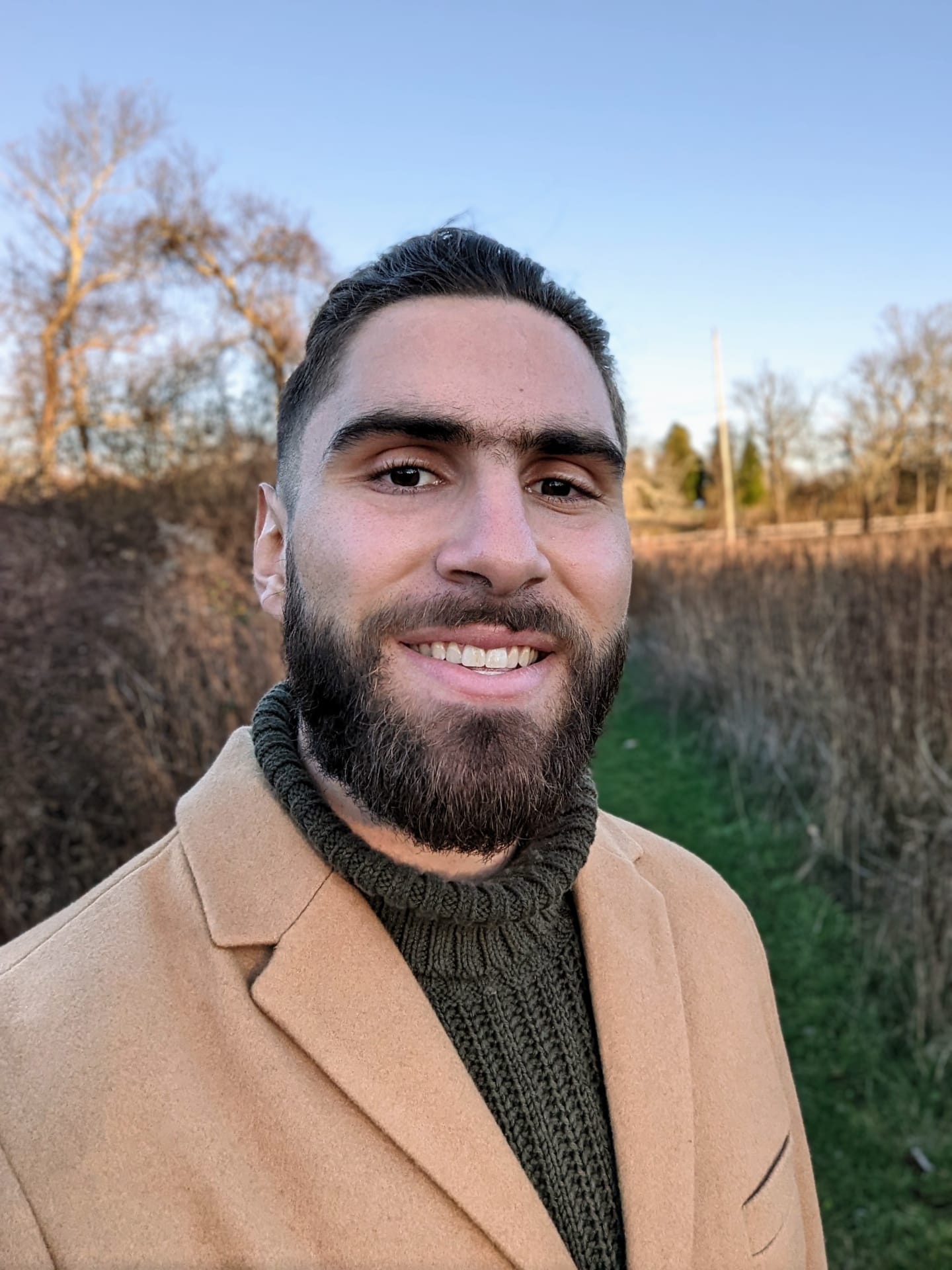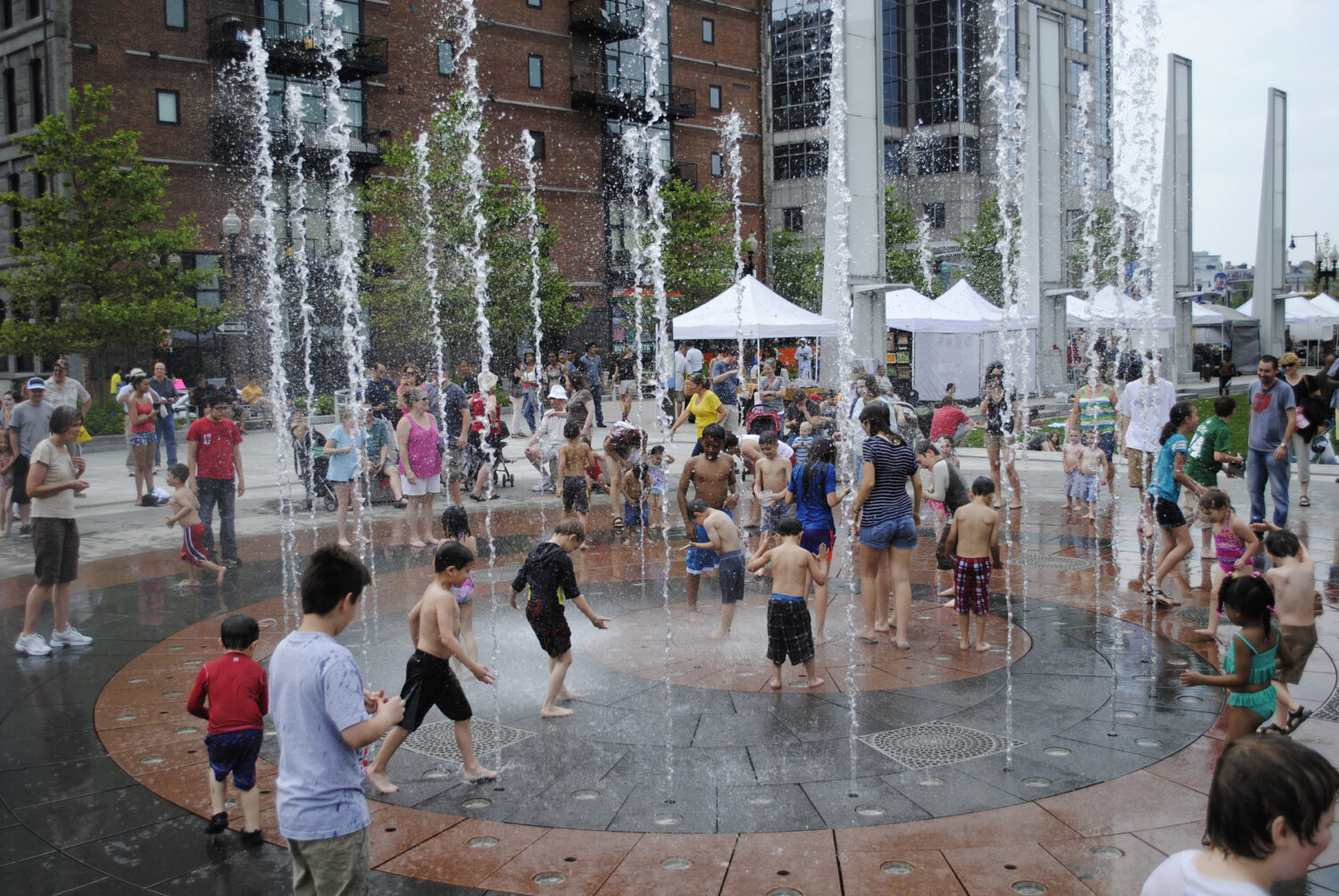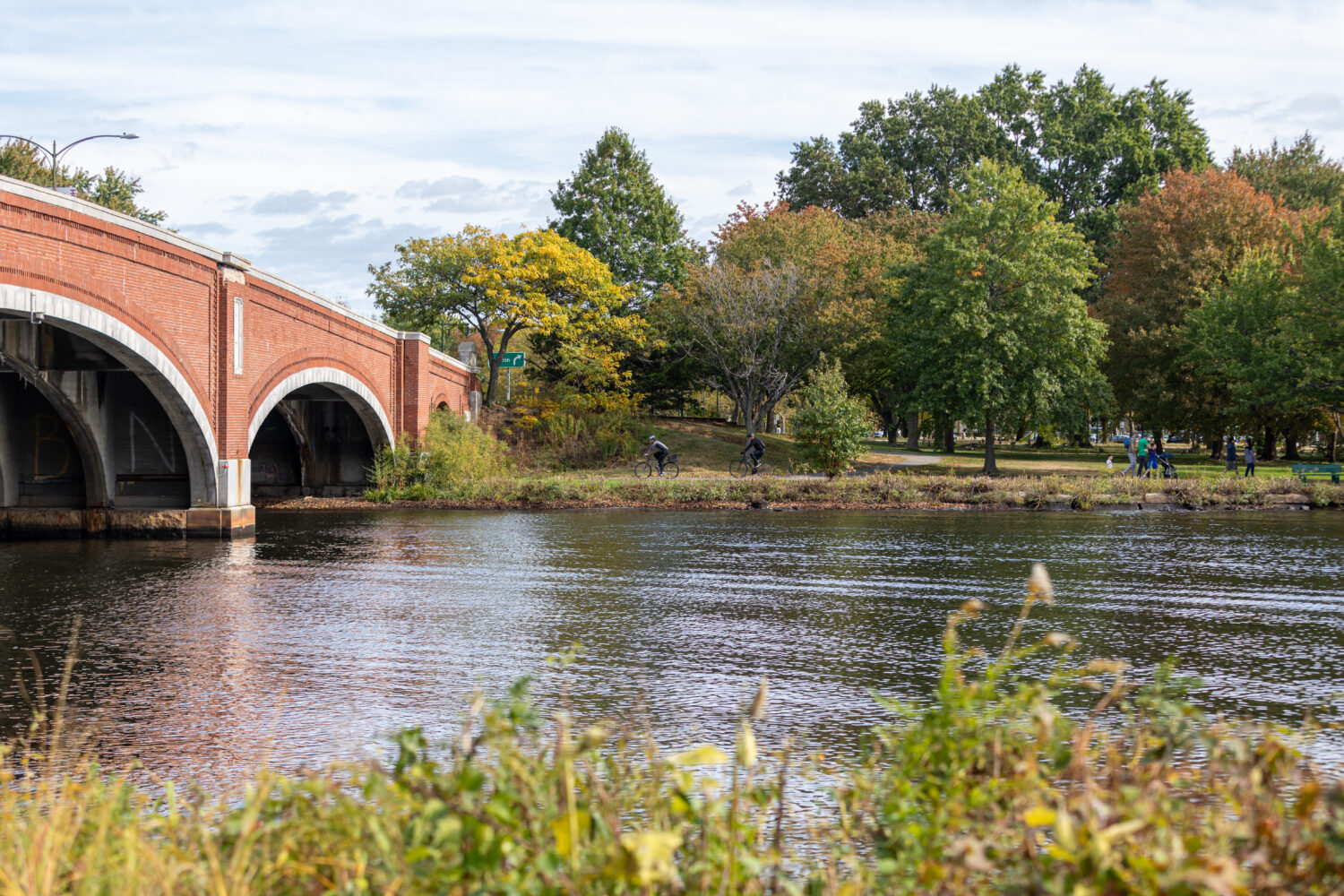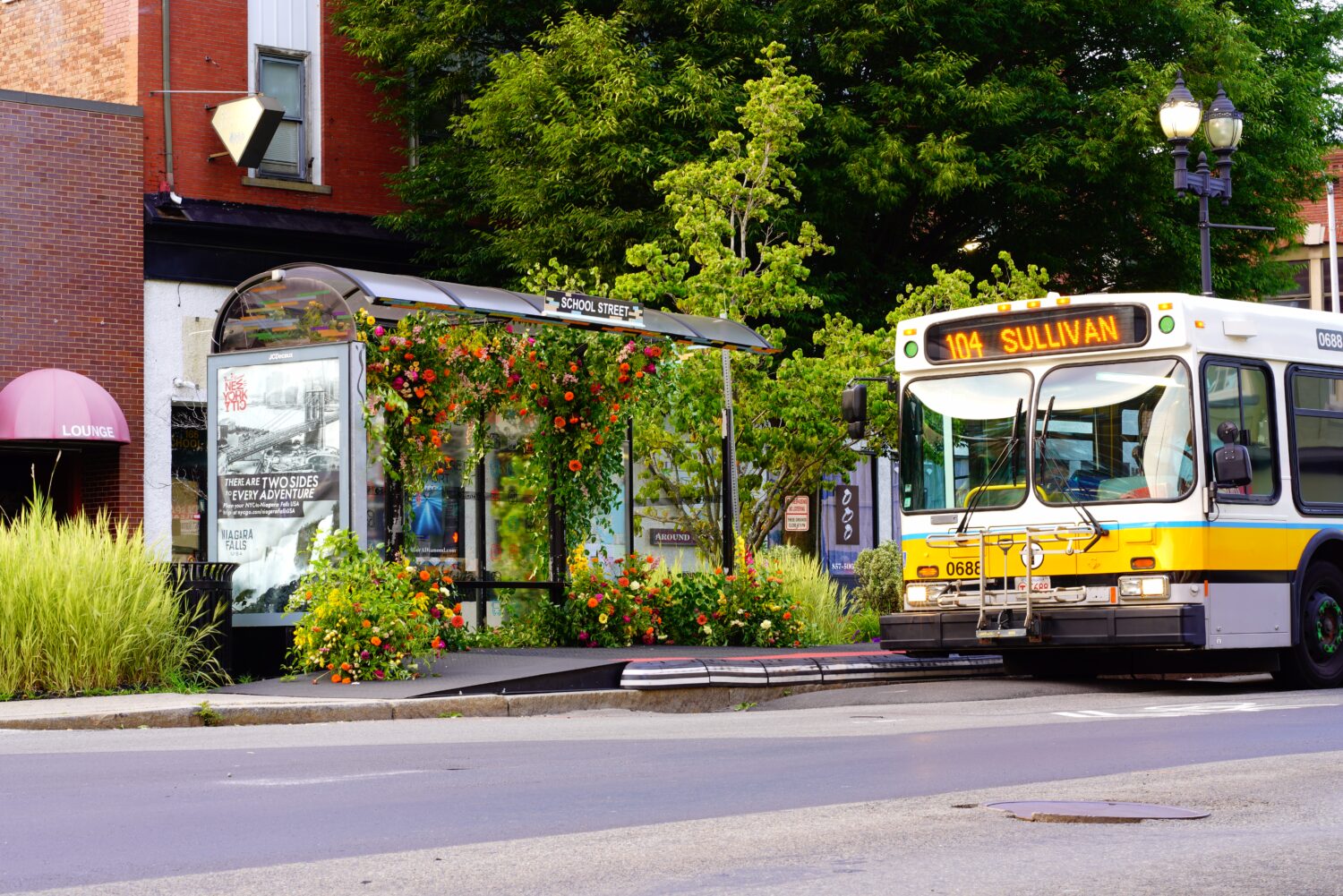This is a story about a normal Friday afternoon that happened to be one of the most exciting moments in my personal and professional life.To set the scene: I walk into a room full of people – food, laughter, smiles all around. A long banquet table is full of delicious plant-based food and freshly-squeezed juices, all provided by local black-owned businesses. I smell curry, ginger, and faintly, lavender. I’ve just walked onto the campus of Mass Audubon’s Boston Nature Center. Nestled in the heart of Mattapan, I’m surrounded by more than two miles of trails to enjoy that twist through forest, meadows, wetlands, and community gardens.
It could be any Friday afternoon; it could be any group of people. But it’s not. It’s a space that I and many other Black, Indigenous, and other people of color (BIPOC) environmental professionals have yearned for – in my case, for over a decade.



That Friday afternoon was Professionals of Color in the Environment’s (POCIE’s) first “Day of Wellness.” The event focused on creating space for BIPOC environmentalists to take a moment to breathe, decompress, and build community through movement and stillness, communication and quiet.
The intention was for participants to choose their own adventure that met their needs: yoga, mindfulness, meditation, and massages were all available. Or, they could decide to sprawl out in the sun, or under a tree with a book or journal.
As an Arab-American studying and working in environmental spaces, I’ve longed for a community like this. The Day of Wellness was my very first time experiencing a BIPOC-only space for environmentalists. Out of hundreds of classrooms, teams, workspaces, conferences, and field research trips, it was extraordinary to be in an environmental space free from the burdens of representation and explanation. Universally, these spaces are crucial. They allow for community building, resource sharing, knowledge exchange, and much more – ultimately serving as incubators for personal and professional growth and inspiring the next generation of BIPOC leaders in the environmental field.
Personally, having access to spaces like the one we gathered for during the Day of Wellness would have impacted me dramatically – by fostering a sense of belonging and empowerment in climate and environmental spaces that wasn’t organically available. Additionally, POCIE’s community and network would have been an invaluable resource for me to grow personally and professionally for the past decade.

POCIE represents those who, at minimum, have two very important things in common. One: everyone has committed part or all their lives’ work to environmental stewardship in some form. Two: every POCIE community member identifies as BIPOC. By nature, POCIE is rooted in Black, brown, and Indigenous knowledge and practice, and represents the origins of conservation and connectivity with nature. Our community is composed of the faces of climate activism, environmental justice, and community organizing.
However, nothing we’re trying to do is new. Everything we do is a proverbial return to our roots, as this group reflects the origins of conservation and environmental stewardship. That means community focused, with open lines of communication and input on how to best address the needs of our peers and steward our shared environment.
POCIE envisions BIPOC communities having decision-making power and leadership roles in environmental practices, climate action, and community well-being. We strive to make this vision reality through the three main pillars of our work:
- Creating safe spaces for environmental professionals of color to gather for social and professional networking
- Promoting cross-sector collaborations by building professional partnerships
- Building a pathway for students and early career professionals of color to succeed in the environmental sector and take the lead as the next generation of environmental leaders
As POCIE’s Operations Manager, creating the spaces that I’d long dreamed of is profoundly fulfilling. In addition to the Day of Wellness, I have been fortunate enough to dive into work targeting POCIE’s two other main pillars. Recent activities have included organizing career panels for youth of color to meet professionals with shared lived experience; and facilitating mentorship collaborations between POCIE and cross-sector partner institutions.
Getting involved with POCIE has served as a refreshing affirmation that our needs for community, collaboration, healing, connecting, and rest can and should be central to environmental work. The gratitude, joy, and community I have already felt in my short time with POCIE only reinforces how important this is for BIPOC in the environment. By building equity from the bottom up and allotting decision-making power across our community, POCIE attempts to make the world we envision internally a reality and take meaningful steps towards changing the landscape of the environmental field. It is exactly for these reasons that groups like POCIE need to exist.
All of our programming is completely free, and we welcome you to join our efforts to create an inclusive environmental movement for a racially just and resilient future. If you identify as BIPOC in the environment in Massachusetts and are interested in joining POCIE or have any questions, please reach out to me!
POCIE is a grantee of Barr’s Climate Program. One approach the Climate team pursues to advance equitable solutions for climate change is to provide career pathways and support for professionals of color working in the climate movement in our region. Learn more about the Climate team’s approaches to center racial equity.
